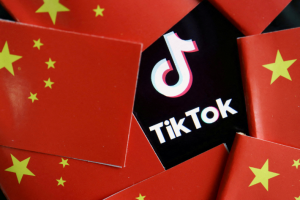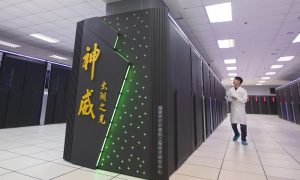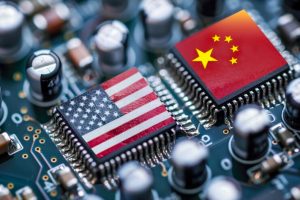The disappearance of a top Chinese economist, alleged to have criticized Xi Jinping, may be linked to deep divisions in the Chinese leadership about the President’s management of the economy.
The Wall Street Journal reported on Tuesday (Sept 24) that Zhu Hengpeng was investigated, detained and removed from his posts at one of China’s top think tanks after posting remarks to a private group on WeChat about the lacklustre economy and Xi’s “mortality.”
Zhu is seen as a “liberal scholar” who lost his job as deputy director of the Institute of Economics at the state-run Chinese Academy of Social Sciences because he failed to toe the party line and “talk up the economy.” But reports by other outlets suggest the drama was far bigger – and that it stemmed from a power struggle between Xi and another CCP “princeling”.
ALSO SEE: Top China Economist Missing After Xi WeChat Comments – WSJ
‘A political earthquake’
Taiwan’s Central News Agency reported on September 16 that the Institute had suffered a “political earthquake,” and that both the director and secretary of the Institute had also been replaced – by party appointees so loyal to the president they are deemed to represent a “one-pot” leadership.
CNA quoted Hong Kong’s Sing Tao Daily as saying these three leaders were replaced, while the “remaining poison” still needed to be cleaned up.
It said the Academy of Social Sciences was “China’s highest academic institution for the study of philosophy and social sciences, as well as a central think tank and ideological powerhouse,” although over 10 years ago it had been rocked by purging of two officials linked to an “espionage case”.
The following day (Sept 17), Radio Free Asia reported (in Mandarin) that Taiwanese national security personnel were saying “Xi Jinping’s leadership authority is damaged and a major crisis is coming.”
Those individuals could easily have political motives to make such conclusions, but RFA provided greater background on Zhu – and a US-based commentator gave what could be the real reason why the Institute’s three leaders were all replaced.
Zhu, 55, was criticized several months ago for targeting young people and being out of touch with reality, RFA said, noting that searches for ‘Zhu Hengpeng’ on Baidu and Weibo showed he made controversial remarks at a ‘China Elderly Care Industry Forum’ in May.
“He proposed that young people should pay for the elderly care of their parents in their hometown, especially those in flexible employment. He believes that this move will greatly increase the enthusiasm of young people to pay,” it said.
After these remarks “netizens exploded” and young people were angered, allegedly saying fees for social security, water, electricity gas and high-speed rail had increased, but young people’s wages had not risen.
‘Power struggles, and secret of Xi’s poor health’
Far more interesting, however, were remarks by Chen Pokong, a commentator in the US, who said the replacement of the Institute’s leaders stemmed from a “complex ideological struggles” and power struggles .. “and even involves leaking the secret of Xi Jinping’s poor health.”
“According to Beijing news, Xi Jinping was seriously ill some time ago. Now that he has recovered, he is particularly seeking revenge against the leaker. Xi Jinping’s health is the top secret of the party and the country. The Institute of Economics of the Chinese Academy of Social Sciences is said to be one of the channels for leaks to the outside world,” Chen was quoted as saying.

Xi was believed to have had disagreements and severed ties with Liu He, the former vice premier and Politburo member who signed a trade deal with Donald Trump.
“He was Xi Jinping’s confidant, and confidant responsible for economic affairs and negotiations with the United States. Later, the relationship between Xi and Liu deteriorated. Liu He opposed the Cultural Revolution, the Mao era, and the planned economy, and advocated friendship with the United States. In the later period, the relationship between Xi and Liu was like a falling out.”
The two men were both “princelings” – descendants of senior Chinese Communist Party leaders, he said.
“In July and August, there were various rumors about Xi’s illness, including actions by the princelings and statements by political elders. Xi Jinping’s power has been weakened to a certain extent, and there seem to be many princelings behind the scenes. Liu He has become a princeling who opposes Xi and joins the anti-Xi camp,” Chen said.
“The Institute of Economics of the Chinese Academy of Social Sciences was established by Liu He. Liu He was responsible for several general secretaries such as Jiang Zemin, Hu Jintao and Xi Jinping, and drafted their economic speeches.
“After Liu He retired last year, he met with US Treasury Secretary Yellen. In April this year, Yellen visited China and was supposed to meet with Liu, but she did not show up, which shows that he is in a bad situation, or that Xi did not allow him to show up,” Chen said.
With the economy faring badly under Xi, scholars no longer feel free to express their opinions and the expulsion of Zhu is seen as a strong warning.
Other Chinese academics in the US also appear to believe China’s economy is in a serious crisis and that economists who tell the truth will also be labelled as “making irresponsible remarks.”
Lingling Wei, one of the WSJ reporters who broke news this week about the disappearance of Zhu, said increasing moves by the leadership to stifle dissent was one the reasons that the country is losing credibility with the business sector – and suffering “a crisis of public confidence not seen since China’s reopening to the world in the late 1970s.”
- Jim Pollard
ALSO SEE:
US Plan to Ban Chinese Tech in Vehicles on American Roads
US House Passes Bill to Limit China’s Access to EV Tax Credits
US Planning ‘Aggressive’ Rules on Data Security for Chinese EVs
Chinese Firms Seen Shifting Production Abroad to Avoid US Tariffs
China-US Tensions Threaten 45-Year-Old Technology Pact – FT
Yellen Warns China on ‘Excess Production, Unfair Trade’
China Vice Premier Liu He Speaks With Treasury Secretary Yellen
























